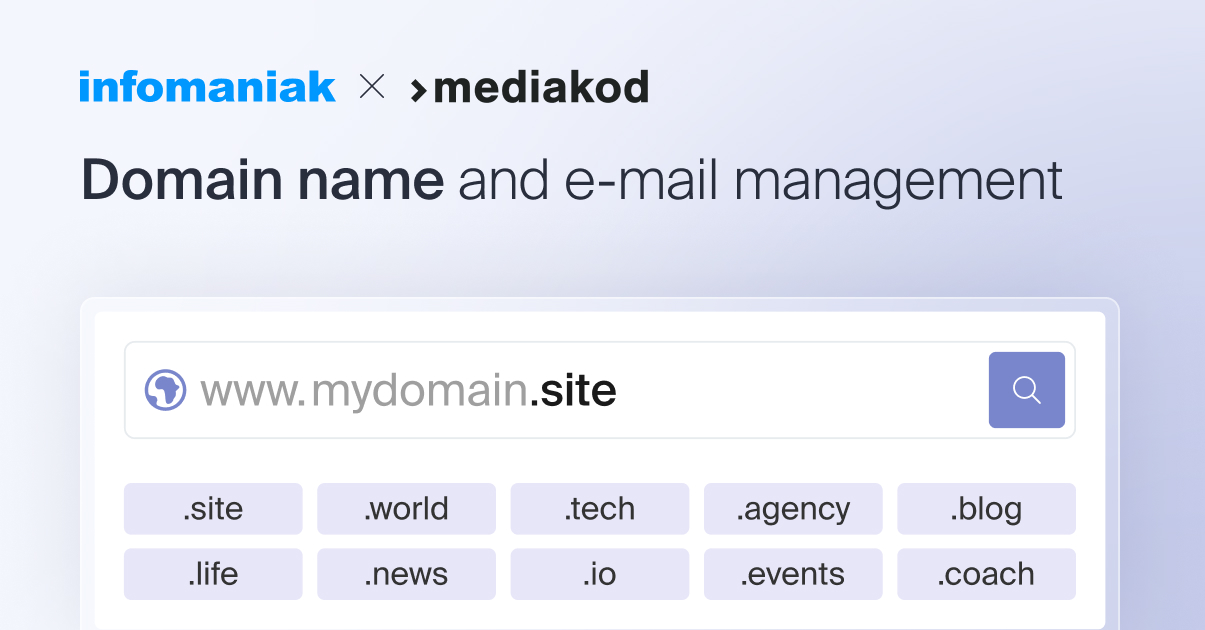Switzerland is revising the ordinances governing telecommunications surveillance. These technical texts, adopted without a public vote or systematic parliamentary review, could impact our fundamental rights. Infomaniak opposes the revision in its current form, without giving in to fear or pressure. We advocate for a responsible digital environment: no mass surveillance, and no unchecked anonymity enabling criminal activity. A democratic debate is essential.
🕒 20-Second Summary
- Infomaniak opposes the revision of the LSCPT ordinances in its current form, which lacks safeguards against mass surveillance.
- The company defends a responsible digital model: no total anonymity, no mass data collection, but a strict legal framework and targeted, regulated judicial action.
- This revision highlights a paradox: while questioning our institutions, it simultaneously deepens Switzerland’s dependence on services governed by far more intrusive foreign laws, such as the Cloud Act.
What Is This About?
The Swiss Confederation has launched a public consultation on the second revision of the implementing ordinances of the Federal Act on the Surveillance of Postal and Telecommunications Correspondence (LSCPT).
The aim is to update these texts to reflect technological developments and current practices among digital service providers. The revision concerns, among other things, the retention of certain metadata related to personal communications, interception capabilities, and the means of collaboration between providers and competent authorities.
Our Position
We oppose this revision in its current form. We believe it must be more clearly regulated from a legal standpoint and, above all, debated transparently to avoid a drift toward generalised surveillance in the name of security. Requests for data access should always require judicial approval.
Democracy relies on the balance of powers between the legislative, executive, judiciary and the press. In a context where most of our interactions and activities are digital, it is only right to ask how we reconcile privacy with accountability—and how Switzerland can act to avoid becoming a digital haven for criminal activity.
As in real life, the Web must not become a Wild West. Privacy should not be used as a pretext to create digital impunity. At the same time, we must avoid any drift toward mass, systematic surveillance. Legal action—as is currently the case in Switzerland—must remain targeted, occasional, and under judicial oversight.
This revision sheds light on realities that are often overlooked:
- For example, the US Cloud Act allows the United States to access emails, documents, photos, or backups stored with providers subject to US law — including data hosted in Switzerland or Europe — without informing the users or local jurisdictions.
- Another example: Microsoft recently announced a $400 million investment in Switzerland, in the presence of Federal Councillor Guy Parmelin — a surprising show of enthusiasm given that these services remain fully subject to the Cloud Act.
It is paradoxical to criticise this revision while ignoring our reliance on even more intrusive US-based services.
Such extraterritorial, opaque access must never become the norm in Switzerland or Europe.
The Issue of Online Anonymity
Infomaniak protects user privacy without promising impunity. Unlike some services, we require a real identity upon registration. We are not a provider of free anonymous services, but this does not prevent us from defending freedom of expression.
Digital technology plays a central role in our lives, and it is entirely appropriate that rules exist to prevent abuse, without undermining freedom of speech and the right to confidentiality. These fundamental freedoms must be upheld, but they cannot serve as a shield for impunity. This is not about choosing sides — it is up to society to find a fair balance.
The Issue of Data Retention
Storing more user data increases risks in the event of a security breach, as a hacker could access information that otherwise wouldn’t exist. But it’s important to put this in context.
Among today’s tech giants, the systematic collection and retention of user data is the norm. Everything is tracked, analysed, and continuously used — without provoking much public debate. Infomaniak firmly opposes this model.
Since its founding, Infomaniak has always committed to retaining only the data our clients consciously choose to store with us — in full respect of their privacy and with no commercial exploitation.
A Legal Update That Must Be Debated
This revision raises a legitimate concern that we share: that security could be used to weaken fundamental freedoms, as already happens under the Cloud Act.
Switzerland is a stable democracy, with strong institutions, clearly defined judicial procedures, accessible appeal rights, and a referendum system that allows citizens to directly oppose adopted laws.
However, ordinances are not subject to public vote, unlike federal laws. Parliament is also not systematically involved in their approval. These new texts may impact fundamental rights, which is why we have taken a stand in the media and why collective vigilance and ethical responsibility from service providers are essential.
Find Out More
Euria: the free, sovereign AI assistant to no longer depend on the American giants
Tuesday December 9th, 2025
Case study: the agency Idéative chooses Infomaniak to power the Geneva Tourism sites
Tuesday August 5th, 2025

 Français
Français Deutsch
Deutsch Italiano
Italiano Español
Español




